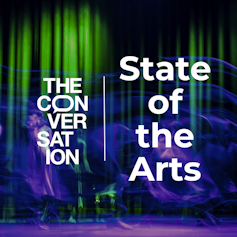The arts and cultural sector is facing a multitude of challenges. With COVID and cost of living crisis following hot on the heels of a decade of funding cuts, many organisations have had to strip back their programmes. Some have closed altogether.
In the face of this stark reality, the Conservative party’s 2024 manifesto feels short on solutions. Over 80 pages, “arts” and “culture” are each mentioned only once. This is compared to “heritage”, which is addressed six times.
The Conservatives state that culture and sport lie “at the core of our national and local identities” and pledge to “support our world-leading creative industries”. Yet, arts and culture are squeezed into one short page, alongside sport, media and the nighttime economy.
There are some welcome promises to continue creative sector tax incentives, to support creative IP in the face of artificial intelligence, and to offer apprenticeships in film, TV, gaming and music. But there’s little detail on how these might operate and next to nothing regarding the flailing arts and cultural sector itself.
Analysis of the 2023 Labour Force Survey by the Creative Industries Policy and Evidence Centre reveals stark inequalities. For example, 90% of the cultural workforce is white (compared to 85% across the population) and working-class people are underrepresented in every area of arts and culture. There’s nothing in the manifesto acknowledging the urgent need to diversify cultural workers and audiences.
Although the Conservatives point out that the £1.57 billion support package during the pandemic saved the cultural sector from annihilation, our research at the Centre for Cultural Value shows that it did very little to foster diversity or support the freelancers that the sector relies on. That said, creative freelancers could benefit from the proposed plan to abolish the main rate of National Insurance for self-employed workers.
But, in short, there’s no bold ambition outlined to safeguard, never mind transform, the “world-leading” cultural sector that the Conservatives state is so crucial to our identity and place in the world.
A rocky road ahead
Whoever takes over in July, the challenges facing the new secretary of state at the Department for Culture, Media and Sport (DCMS) will be significant. Local authorities remain the largest funder of subsidised arts in England, and yet their finances are in a perilous state.

This article is part of our State of the Arts series. These articles tackle the challenges of the arts and heritage industry – and celebrate the wins, too.
This bodes ill for non-statutory areas such as culture. Some councils have already announced swinging cuts to their culture budgets, which risks increasing cultural deprivation across already hard-hit communities. At national government level, public finances are equally squeezed and the economy is flat-lining again. With both main parties claiming to be ruling out pre-allocated tax rises, there is little chance of a generous spending review in the autumn for the DCMS.
The promise of greater English devolution offers some exciting opportunities for redistributing cultural funding and stimulating place-based initiatives. All the same, the current lack of cultural policy infrastructure in local and combined authorities remains a serious concern.
At the Centre for Cultural Value, we’ve done a lot of thinking about the role that arts, culture and heritage play in people’s lives and society. Some funders and policymakers still tend to hone in on the indisputable economic value that culture can bring.
Yet, there’s an urgent need for a more nuanced understanding. An undertanding that doesn’t pit the significant economic impacts of the cultural industries against the personal and collective values of engaging with arts and culture. That’s whether, formally or informally, you engage with it as an audience member, an artist or participant. As academic of the cultural economy Justin O’Connor argues, culture is a force for public good, not (just) an industry.

The Green party appears to take a more holistic view of cultural impact that the Conservatives. Their manifesto states: “Arts, culture and sports are central to people’s mental and physical wellbeing, and to thriving communities. They also make a huge contribution to the UK economy.” Accordingly, the Greens pledge a £5bn investment to support community sports, arts and culture and keep local facilities “open and thriving”. They also promise to scrap VAT on cultural activities to make them more accessible.
Similar to the Conservatives, Labour’s manifesto also lacks the big vision required to grasp the scale of the challenges and the opportunities ahead. Instead, there is some familiar rhetoric about industrial strategies and the potential for growth in the creative industries. However, there are some welcome plans to support a creative curriculum and distribute cultural assets in a more equitable way across the nation, which the Conservative manifesto lacks.
Although the party manifestos may miss the opportunity to outline an ambitious strategy that could really place arts and cultural engagement at the heart of our national and local identities, the sector can only hope that the next government will see the huge potential benefits in investment.
There is growing evidence that the cultural sector can support cultural diplomacy, attract tourists, foster positive health and wellbeing, animate neglected towns and cohere fractured communities. Why then squeeze it out?

